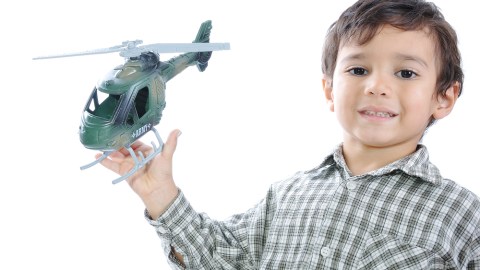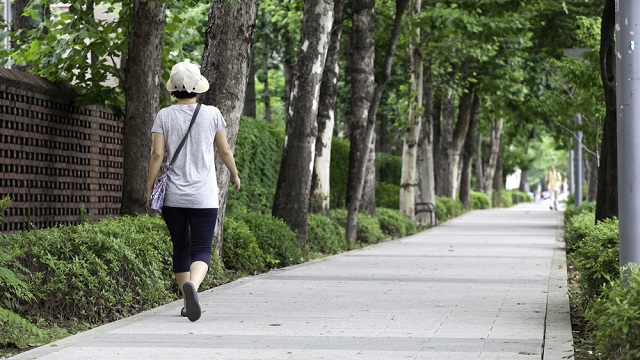Helicopter Parent Down

One of the most talked-about parenting paradigms of the past decade – “helicopter-parenting” – has just taken another direct hit. There have already been early signs of a backlash against overparenting, but now it’s official – taking too active a role in your kids’ lives can cause depression and incompetence. And, according to the Journal of Child and Family Studies, the effects appear to get worse the older your kids are. It’s one thing to hover around your eight-year-old, but it’s another thing entirely when you’re still hovering around your eighteen-year-old. In other words, if you’replanning to hover around your kid’s college dorm room and help him or her with freshman orientation, get ready for years and years of psychological counseling sometime down the road.
As part of the study from the University of Mary Washington in Virginia, nearly 300 college-age kids were asked a series of questions that measured how active their parents were in their lives, as well as a series of questions about their overall psychological health. Perhaps not surprisingly, the helicopter parenting model was shown to increase stress, increase self-doubt and even stunt emotional development:
“You may think you’re helping out by phoning your kids’ college professors to haggle over the difference between a B+ and an A–, but that interference may be undermining young adults’ ability to problem-solve and fend for themselves. Constantly texting adult children and friending them on Facebook — letting them fly the coop but still demanding daily check-ins — is not exactly building a generation of confident and resilient grownups… Parents are sending an unintentional message to their children that they are not competent.”
Which makes sense if you think about it – how can Darwinian selective pressures work their magic if children are relentlessly protected from all the dangers in their lives?
What we may see is a return to retro-parenting methods of the type made famous by Lenore Skenazyand her Free-Range Kids. (Just imagine all those kids, running loose on the New York City subway!) At the very least, it no longer necessarily means you’re a “bad parent” if you don’t take an overwhelming interest in every activity your kids are involved in. Or, as Bonnie Rochman of TIME points out, “Perhaps by choosing to watch Downton Abbey reruns instead of playing Candyland with a tot or editing college essays for a high-schooler, they’re actually building their offspring’s independence and confidence.
But don’t just take it from “America’s Worst Mom” – take it from none other than Pulitzer Prize-winner Jared Diamond, who has given us weighty works like Guns, Germs and Steel: The Fates of Human Societies and Collapse: How Societies Choose to Fail or Succeed. His latest work – The World Until Yesterday: What Can We Learn from Traditional Societies? – includes a full chapter on the parenting techniques of traditional societies that evolved over hundreds of years, such as those found in New Guinea. There, kids are left to fend for themselves. By letting their kids run around in the dirt and play with fire, New Guinea parents encourage them to become resilient, self-confident and autonomous.
And, as if that wasn’t enough, Yale University Press recently published a controversial work from the late Elisabeth Young-Bruehl suggesting that helicopter parenting was part of a broader problem afflicting society she called “childism” — the belief that children are inferior and should be treated accordingly. Every time we hover over our kids like helicopters, we are inherently saying that they are inferior, that they lack important reasoning and intellectual capacities: “Many behaviors that we don’t think of as abuse are in fact abusive because they place parental needs above children’s developmental needs. For example, there are the overly ambitious helicopter parents who push their children intellectually and socially before they are developmentally ready.” For Elisabeth Young-Bruehl, childism was just as much a scourge of our society as two other -isms – racism and sexism. It meant that we no longer cared about the developmental needs of our children.
So where does that leave us? If we don’t embrace the “helicopter parent” model (or, it’s close analogue, the “snow plow” model), are we left to hope for the best with our free-range kids? Maybe, just maybe, as Diamond suggests, it’s worth taking a closer look at the workings of traditional societies. We’ve already seen a return to popularity of baby-wearing, co-sleeping and breast-feeding – three core developmental tactics of more traditional societies – so why not a return to more traditional forms of parenting, where parents actually let their kids figure out things for themselves?
image: Kid With Helicopter / Shutterstock





